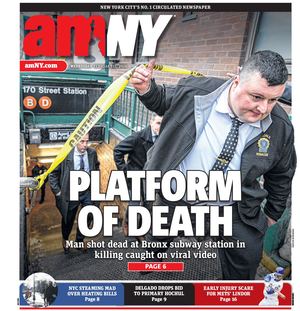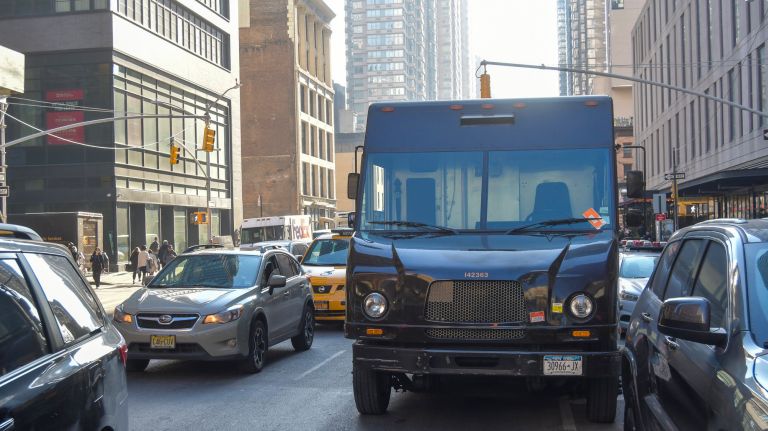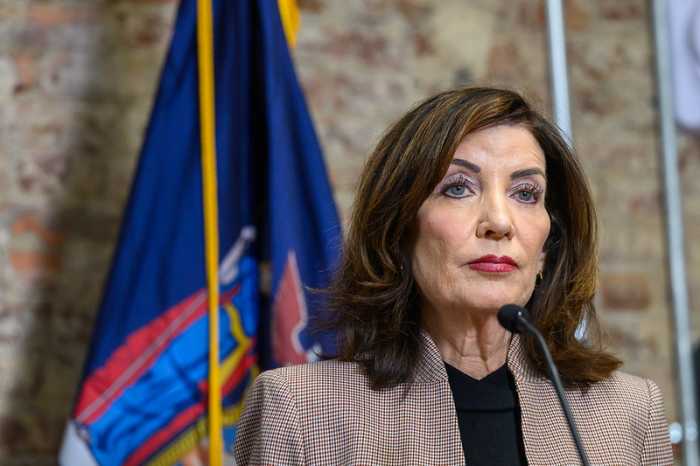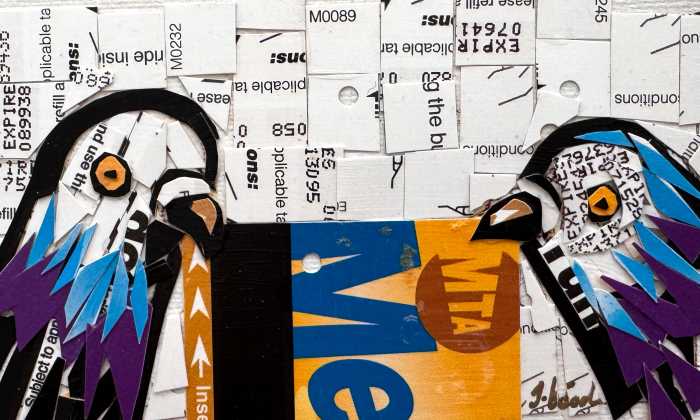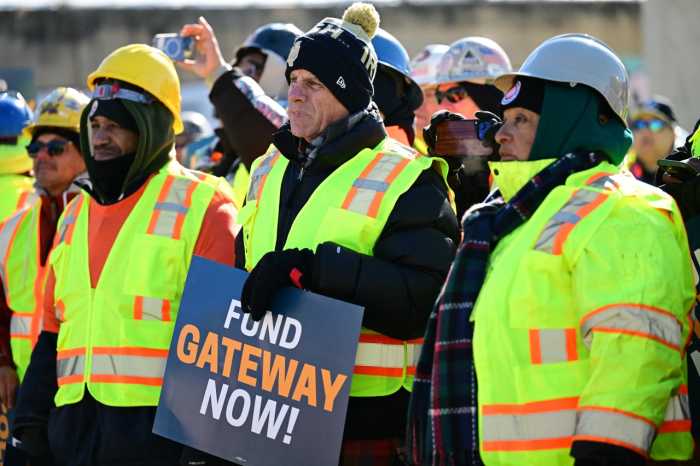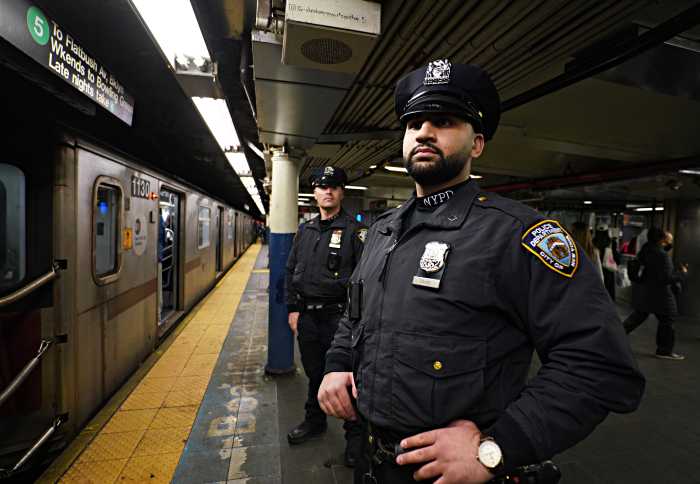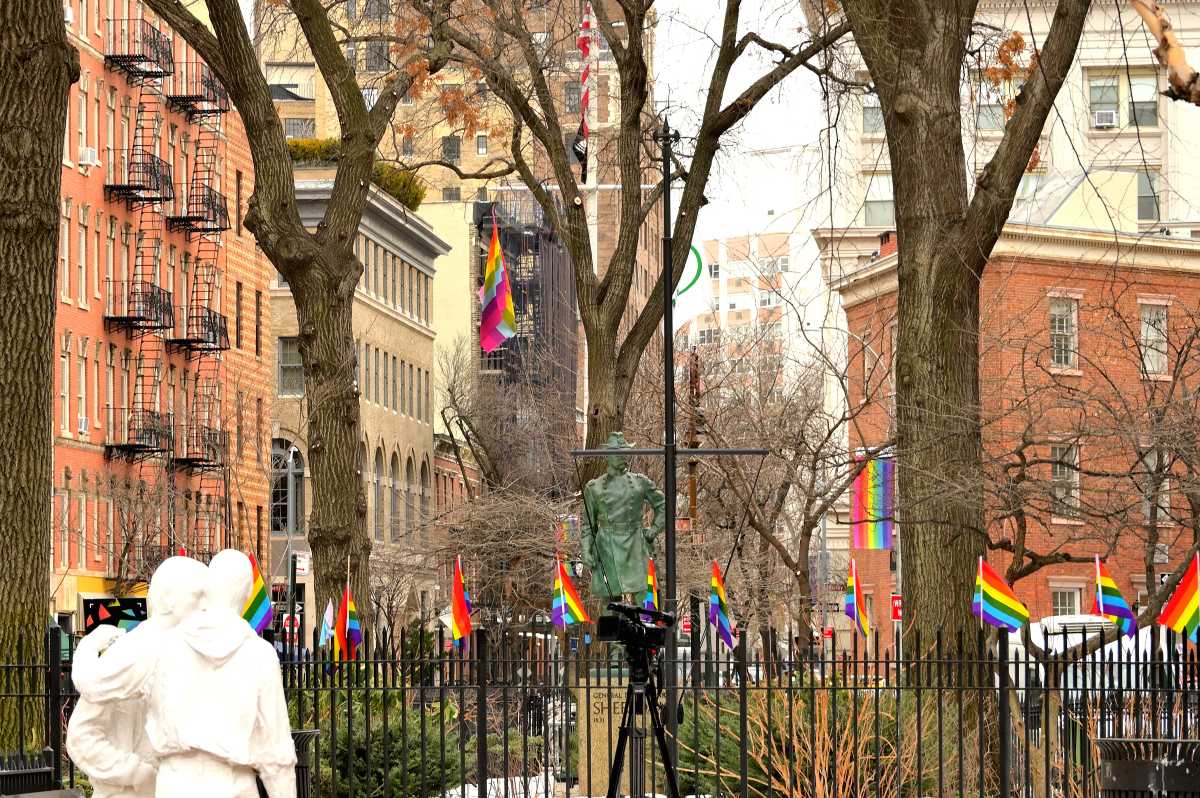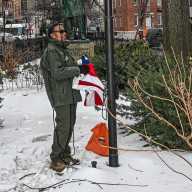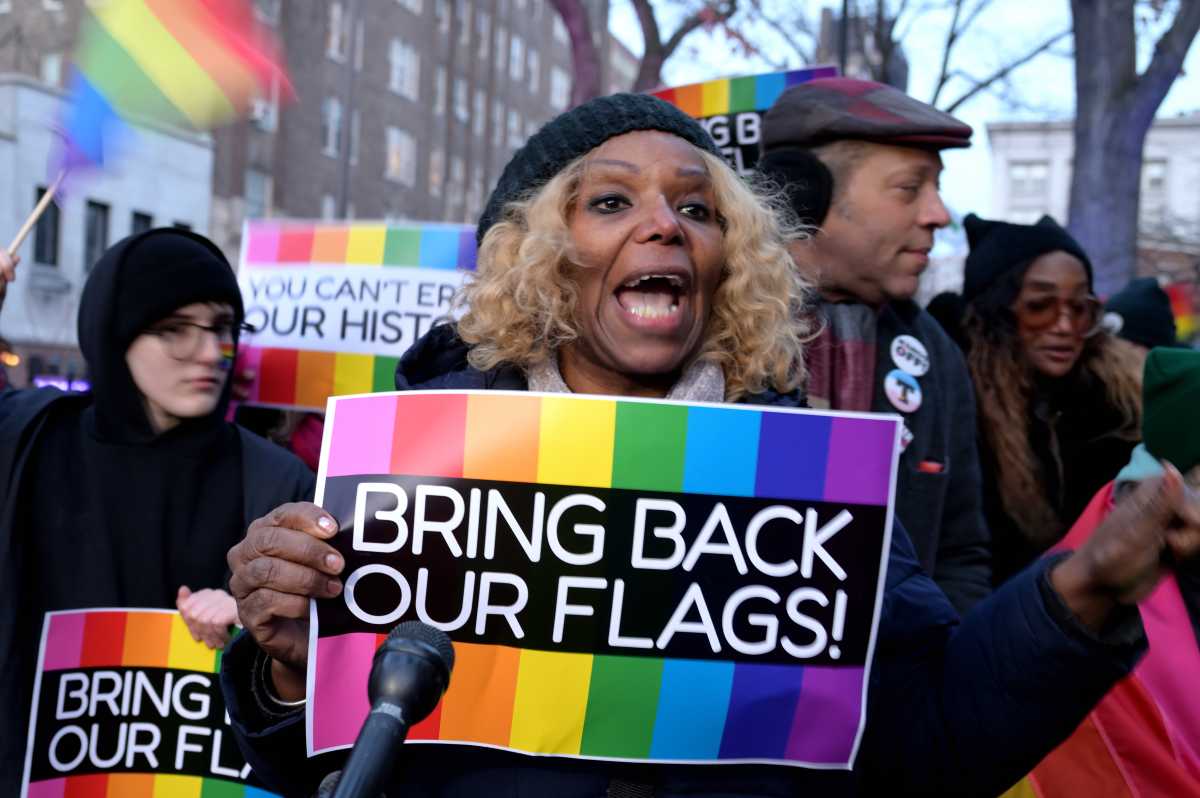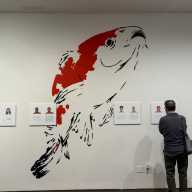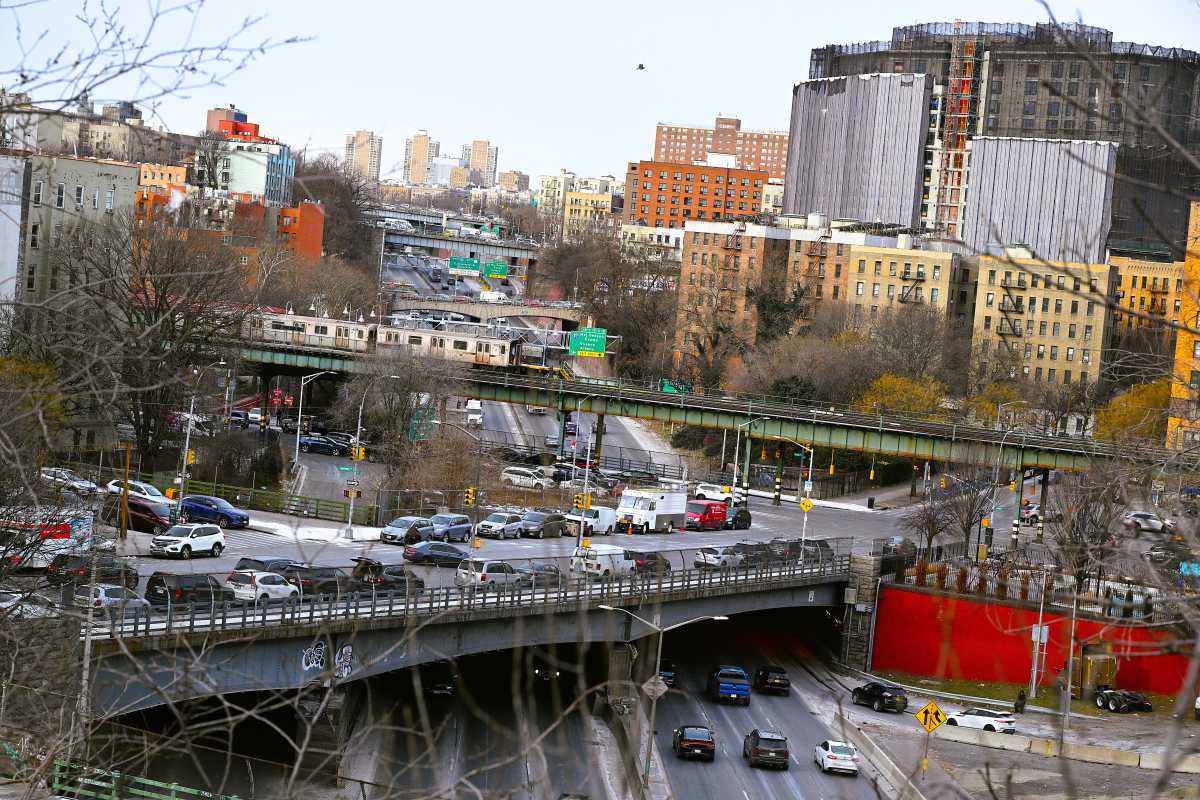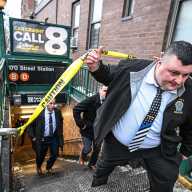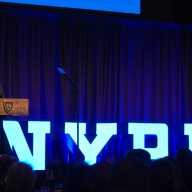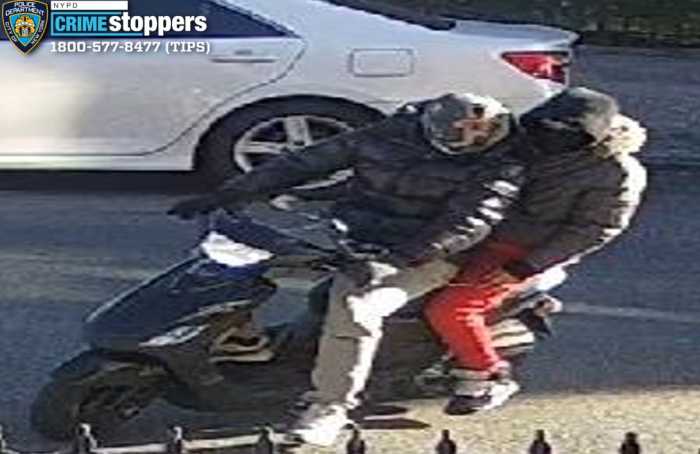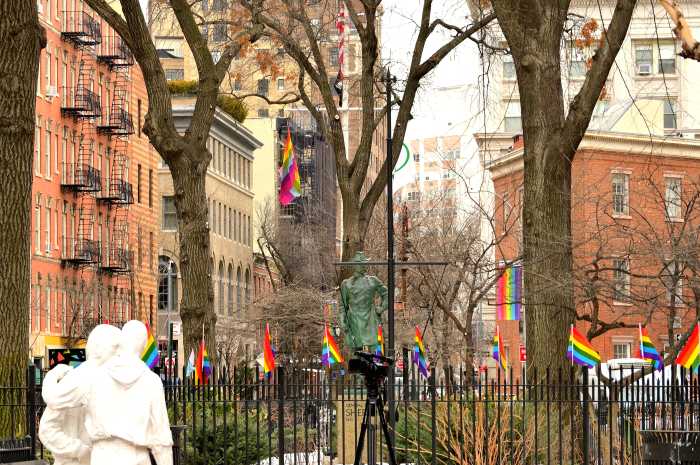
If you can park it here, you can park it anywhere.
Some of the worst-parking companies in the city potentially saved millions in summonses last year through fine reduction programs that the city offers businesses.
The top ten most-ticketed companies shed as much as $10 million in fines in 2018, thanks to the deals, made through the city’s Stipulated Fine Program and Commercial Abatement Program, according to figures from the city’s Independent Budget Office published Tuesday.
UPS was the biggest offender to benefit from the programs last year, when it was dealt 164,580 summonses for illegal parking. It ultimately paid $14 million in fines, but thanks to the deal with the city it saw what could have been a maximum saving of $3.2 million. The exact amount saved is impossible to calculate, because it’s not known how many of the tickets would have been contested, reduced or thrown out.
The city Department of Finance runs the programs to reduce the burden on traffic courts, saving the city money, according to the IBO. The Finance Department offers preset reduced rates on tickets and, in exchange, the roughly 2,200 business enrolled in the programs agree not to contest the summonses in court.
“Increased revenue the city might get absent the programs could get swallowed by the costs of expanding the traffic courts — and could even be a net loss if the courts wound up tossing or reducing the fines on thousands of UPS, FedEx and other firms’ tickets,” said Doug Turestky, an IBO spokesman, in an email.
Jeffrey Shear, a deputy commissioner at the Department of Finance, disagreed with the entire premise of the IBO’s report that the companies could save millions in fines. He said the programs reduce violations in a way that simulates how traffic courts typically function.
"The companies are paying roughly the same as if they contested the ticket," Shear said. "We’re just allowing them to pay that same amount without having to hire" employees to fight them in court.
In December, the department adjusted the programs to generate increasingly more revenue in the next two fiscal years. The vast majority of the revenue comes from the stipulated fine program. The two programs together have brought in an average of $54.4 million in fines annually since 2010, which accounts for a small piece of the total revenue the city brings in each year from parking violations. The city has collected an average of $532 million a year in total parking violations dating to 2010.
But critics see the policy as a giveaway to large corporations clogging city streets and an effective carte blanche for their drivers to park in ways that endanger pedestrians, cyclists and other drivers.
“It could absolutely create dangerous situations because there is not a real penalty for trucks parking in bike lanes or parking irresponsibly in a way that blocks traffic,” said Sarah Kaufman, of the NYU Rudin Center for Transportation Policy and Management. “It all falls under this flat fee.”
Businesses argue that there simply aren’t enough places to legally park in the city to meet the demand for truck deliveries. Kathryn Wylde, president and CEO of the Partnership for New York City, described the programs as an “elegant” way to balance punishment and the current realities of curbside demand.
“There isn’t any [parking]. That’s the problem,” Wylde said.
“If we want to support a balance between the cost and difficulty of logistics, particularly for deliveries in the central business district, it’s a necessary program,” she added.
FedEx and Verizon followed UPS on the list of most-fined parkers, ranking second and third, with 81,996 and 46,135 parking tickets, respectively, according to the data.
Business leaders, through the Partnership for New York City, have in the past unsuccessfully pushed requirements for new buildings to have more off-street space, like loading docks.
Kaufman argues that the program represents the city’s failure to manage its current curb space. There would be less dependency on the program if the city converted more private parking spaces into new loading zones, one of several recommendations the Rudin Center issued in a report last fall looking into the rise of e-commerce in Manhattan.
“So it’s clear that we need these deliveries for our e-commerce addiction, but it’s also clear that we need a better system on our street,” Kaufman said.
Of the top ten most penalized companies the IBO listed in its data, four responded to requests for comment. Both UPS and Spectrum, which placed eighth on the list with 23,101 parking tickets, declined to comment.
Fresh Direct, which placed seventh with 23,220 parking summonses, said it was trying hard to encourage legal parking among drivers.
“There is no correlation between the program and parking etiquette,” a Fresh Direct spokesman said in a statement, “and we are committed to doing our best to uphold the city’s parking rules while meeting the strong demand from NYC residents who are seeking FreshDirect’s quality and convenience.”
David Weissmann, a spokesman for Verizon, said the company has been actively reducing its vehicular footprint in the city and that its cars "are almost always in a legal spot" and ticketed for violations like expired parking meters, though he did not back that up with data.
Removing more private parking is primarily a matter of political will for the de Blasio administration — and would ultimately benefit more than just safety and traffic related to deliveries, Kaufman argued.
The city Department of Transportation did not respond to a request for comment.
“If we reduce the amount of car storage in terms of parking on the street, there can be smoother deliveries for these companies and smarter uses of the curb, like rider share pickups, other kinds of delivery systems and more space for active modes” such as bikes or scooters, Kaufman said. “Whatever people pay for parking on the street never pays for the societal cost of sorting a car on the street.”
Most-ticketed businesses in the city’s stipulated fine programs for 2018:
- UPS: 149,915 parking summonses
- FedEx: 81,996 parking summonses
- Verizon: 46,135 parking summonses
- Verizon Corporate Services: 37,394 parking summonses
- Manhattan Beer Distributors: 27,196 parking summonses
- US Foods, Inc.: 26,286 parking summonses
- Fresh Direct: 23,220 parking summonses
- Spectrum: 23,101 parking summonses
- Liberty Coca-Cola Beverages: 19,440 parking summonses
- Anheuser-Busch Distributors of New York, Inc.: 13,637 summonses
